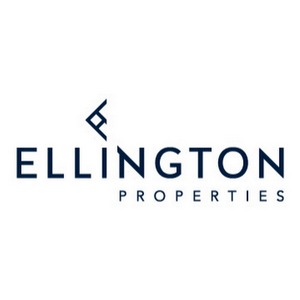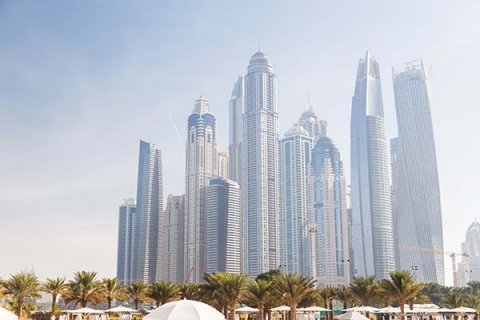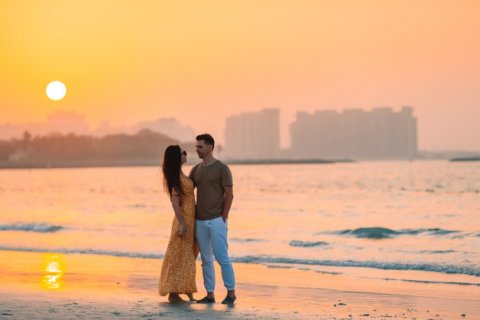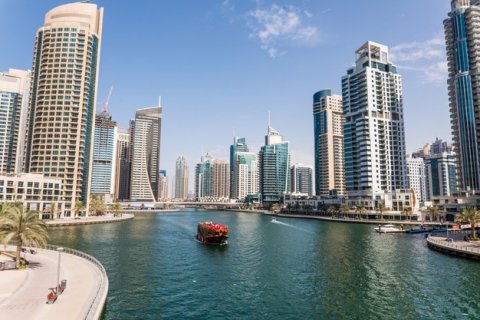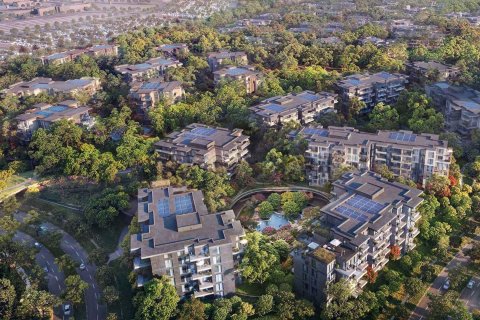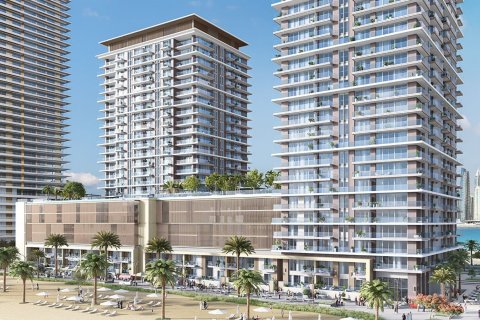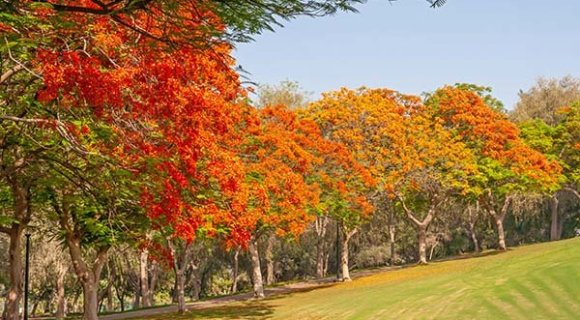
Purchasing real estate in the United Arab Emirates is one of the most straightforward ways to secure a long-term resident visa, akin to a residence permit for foreigners. In 2024, Kirill Goncharov, the head of the consulting firm White Rider, outlines several key steps in the visa application process that deserve careful attention.
Among the most sought-after investment options are properties still under construction, particularly in popular emirates like Dubai and Abu Dhabi. Dubai stands out for having the most efficient and rapid property buying process, making it a prime destination for international investors. However, despite its accessibility, there are several common pitfalls that applicants often encounter when seeking residency. This article will delve deeper into these issues.
It’s crucial to remember that successfully obtaining a visa requires you to choose a property that meets local regulations, verify the reliability of the developer, and ensure all transactions are conducted through licensed agents. By understanding these factors, you can avoid unnecessary complications, protect your investment, and expedite the residency application process. Investing time and effort into these steps will ultimately lead to a smoother experience as you navigate the real estate landscape in the UAE.
Content
Resident visa for 2 years in Dubai
The programme offered in Dubai is one of the most affordable and easiest ways to obtain a residency permit. To participate, an investor must purchase 1 or more properties totalling AED 750,000 ($204,000) or more. In return, the applicant receives a 2-year residency visa that can be renewed indefinitely, as long as they continue to own the purchased property.
If a mortgage is used to purchase the real estate, at least 50% of the total amount or AED 750,000 must be paid and a No Objection Certificate (NOC) must be requested from the bank.
Under the programme, the investor does not need a sponsor and can sponsor his/her spouse and children. If both spouses are going to own shares in the property, a certified copy of the marriage contract will be required.
According to Kirill Goncharov, this option is in the greatest demand today due to the relatively low costs.
‘The UAE market is now focused on off-plan projects that can be purchased with a minimum down payment. This is typically 24% on a property that will be delivered within 4-5 years. Payments are split into equal parts, and the investor pays about 5% per quarter thereafter,’ said the specialist.
Golden Visa in Dubai
The golden visa is granted for 10 years. To obtain it, a foreigner must invest AED 2 million ($544,500) or more. The basic principles of the programme remain unchanged. The investor has the opportunity to purchase 1 or more objects, both under construction and ready-made. The visa can be extended, as long as a foreigner owns the purchased object.
Residential and commercial premises can be purchased either with own funds, in instalments or in a mortgage. The required minimum amount is paid by the investor personally. For properties purchased using a mortgage, a No Objection Certificate (NOC) must be obtained from the bank.
The Golden Visa does not require employment, minimum income or sponsor requirements. Visa holders may sponsor their spouse, children of any age and an unlimited number of domestic helpers.
‘In this case, the minimum payment threshold is 30%, and the applicant must have a title deed to the property in question obligatory. Earlier this year, there were rumours that the government had passed an incredible law that abolished the down payment and allowed anyone who purchased a property for AED 2 million to go straight to apply for a golden visa. But mostly it turned out to be nothing more than a marketing ploy by the UAE authorities to get foreigners to buy more property. In reality, these amendments have not yet entered into force, and instead of them appeared only a small relaxation of the rules for filing documents’, the expert said.
He specified that in the case of joint ownership of the object by spouses, only the partner whose share in the property is AED 2 million or more can get a golden visa.
‘If the spouses want to be 50/50 owners, their property must be worth at least AED 4 million ($1.1 million). Otherwise, only one spouse can get a golden visa and sponsor the other spouse,’ Kirill Goncharov explained.
Difference between emirates
Today, Dubai offers the most flexible conditions for registration of residency by the purchase of real estate. Foreigners can obtain a 2-year visa in the emirate, while Abu Dhabi provides only a 10-year residence permit programme.
Dubai has traditionally been a leader in the UAE property market, which attracts the attention of international investors. Kirill Goncharov notes that with a high probability a similar 2-year visa will eventually be introduced in Abu Dhabi, given the current trends.
At the same time, the situation in Ras Al Khaimah is somewhat more complicated.
‘In Ras Al Khaimah, 10-year and 2-year visas are available with the same requirements as in Dubai. But it should be remembered that this emirate is developing rapidly, and therefore there are constant changes in the conditions for obtaining visas there,’ the expert reports.
Visa for pensioners
To obtain a pensioner visa, the applicant must own a real estate worth at least AED 1 million ($272,500). In addition, he/she must be at least 55 years old or have at least 15 years of work experience. The pension visa is issued for 5 years and can be extended provided that the owner continues to fulfil the above requirements.
Property selection criteria
When applying for a visa, the chosen property must pass all the necessary checks and be licensed by the Dubai Land Department (DLD).
All information about the housing unit is stored in the DLD database, on the basis of which the client can obtain a pre-title deed or title deed. These documents are mandatory for applying for a residency. However, there may be the case when because of irresponsibility of the developer, the buyer does not receive the necessary documents.
‘Today, clients often buy objects at the excavation stage, when not a single pile has been driven yet. The developer is in a hurry to deliver the project faster but constantly postpones the registration process. As a result, the client who has already purchased the property cannot get either a pre-title deed or title deed because the developer has not yet submitted the documents to the DLD. In the future, even if the client has a pre-title deed in hand, the department may still refuse to grant him a 10-year visa and approve a visa for only 2 years,’ Kirill Goncharov said.
Property valuations are carried out by government agencies. However, for real estate such as townhouses and villas, applicants have the option of having an independent appraisal conducted through a private organisation and submitting the results to the department for review. This offers a chance to challenge the assessed value assigned by the state authorities if it does not match the market price of the home.
Mistakes made by applicants
When applying for a visa, it is important to consider a number of key factors to avoid common mistakes. One of them is proof of the applicant's good health, which can have a significant impact on the process of obtaining a residence permit.
‘Many people don't know that the UAE government is very strict about lung diseases, especially tuberculosis. I once had a client come to me who had previously been unable to obtain a visa on his own due to a severe pneumonia he had once suffered. During the treatment, the doctors had to remove part of his lung. After 15 years, he decided to get a visa in Dubai through the purchase of property. When X-rays showed that he had a deformed lung, no one bothered to look into the cause. He was denied an Emirates ID and issued a deportation note. To avoid this, it is important to provide information to the government in advance about any illnesses you have had. You must not be sick with tuberculosis,’ the expert said.
Another common mistake is choosing an unscrupulous broker who may be trying to sell a buyer a distressed property.
The expert also recommended investors to pay special attention to the issues of inheritance after the purchase of an object.
‘In the absence of a will, the distribution of inheritance in the UAE will be handled by the state. In this case, the property will be distributed according to Sharia law, with a big advantage in favour of male heirs. As a rule, women inherit very little. In addition, the state can in certain cases write off in its favour up to 50% of the value of your property,’ the specialist explained.
Highlights
The most affordable way to obtain residency in the UAE by the real estate purchase is through a 2-year visa in Dubai. To apply for it, you only need to purchase a property worth AED 750,000 ($204,000) or more. This visa is ideal for families with children, as spouses can jointly own the property. Alternatively, you can use a mortgage loan. The visa is issued for 2 years with the possibility of renewal.
The Golden Visa requires an investment of AED 2 million ($544,500) and grants residency status for 10 years. This option is suitable for wealthy investors purchasing high quality objects and planning to bring in domestic staff.
If spouses wish to jointly own a home, one of them must have a share of AED 2 million to qualify for a golden visa. It is this spouse who will sponsor the second spouse.
Dubai offers the most flexible conditions for obtaining a residence permit by property investments. In Abu Dhabi, only a 10-year visa is currently available. In Ras Al Khaimah there are options for both 10 years and 2 years, but the conditions for obtaining these types of residence permits are constantly changing.
To apply for a retirement visa, it is necessary to own real estate worth from AED 1 million ($272,500). At the same time, the candidate must be over 55 years of age or have a labour experience of at least 15 years.
To avoid problems when applying for a visa, you should take into account a few important recommendations:
- Provide the state authorities with medical certificates, especially regarding past pulmonary diseases.
- Beware of unscrupulous brokers who persistently offer to purchase property in little-known complexes. This may indicate problems with the documentation of the property or unresolved issues between the developer and the Department of Land Development (DLD).
- Resolve property inheritance issues in advance to avoid distribution under Sharia law.
Emirates Estate is a platform specialising in UAE real estate that brings together offers from trusted developers and agencies, empowering users to find the best options for relocation and investment.











































